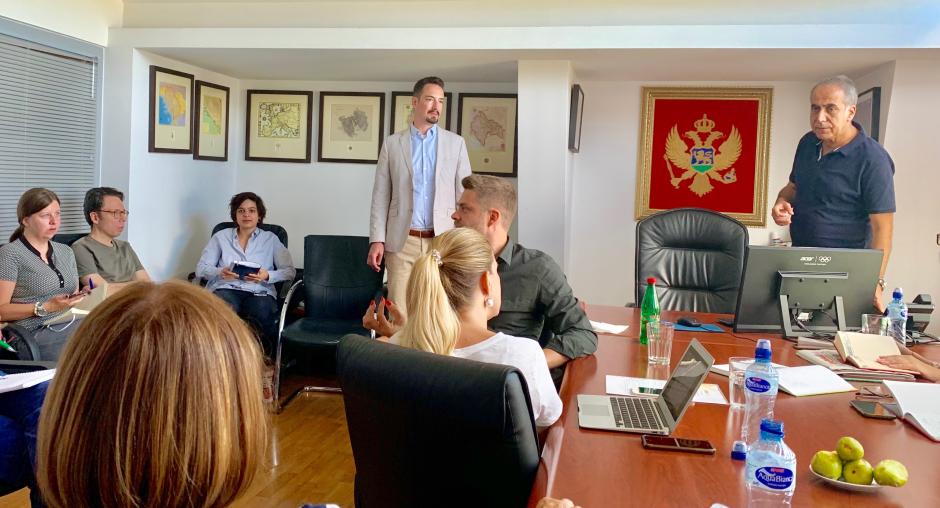OSCE Mission to Montenegro supports training on improving convergent reporting skills

In order to support media in Montenegro to improve their convergent reporting skills, the OSCE Mission to Montenegro is organizing ten-day in-house training courses for six media outlets from 22 to 31 August 2019 in Podgorica.
The training is focusing on improving techniques for reporting and editing copy from the field, saving time and costs of production. It also aims to assist media outlets in establishing cooperation and synergy amongst different departments within a given media house. The training will be conducted within each respective media house, enabling participants to freely interact with one another and facilitating the sharing of ideas and approaches between management and front line journalists.
Opening the first session, Daniel Blank, Media Programme Manager at the OSCE Mission, said: “This training is designed to support our partners in establishing closer co-operation and synergy within the different departments of their media houses and improve reporting techniques in the field, as well as editing techniques, to create appealing and informative media products for audiences.”
Three experts, Lamija Alečković, media expert in new media products; Tena Perišin, a journalist and professor of Journalism Studies at the Faculty of Political Science, University of Zagreb, and Dejan Oblak, video and mobile journalism expert and assistant at the Faculty of Political Science in Zagreb, are facilitating the sessions.
Alekčković said that convergence in taking news from print, radio and television for distribution on digital platforms requires a new strategy, as digital content has its own laws and end products. A multimedia approach in creating and launching of products is necessary, especially to reach a younger audience.
Perišin reflected on converting and integrating different media into one production process, without compromising on the quality of the journalism: “Maintaining credibility through this transition is crucial. While new media have brought speed to the process, often at the expense of verifying the accuracy of information, good practice shows that this need not be the case,” she said.
Part of the training is dedicated to the use of mobile phones in presenting and producing video stories for portals. Oblak explained that "mobile phones are used often to produce short videos as well as documentaries. What distinguishes a professional from an amateur is their knowledge of the audiovisual language and journalistic skills."
These training courses are a partial fulfillment of the committment of the OSCE to support professionalism of the media.
